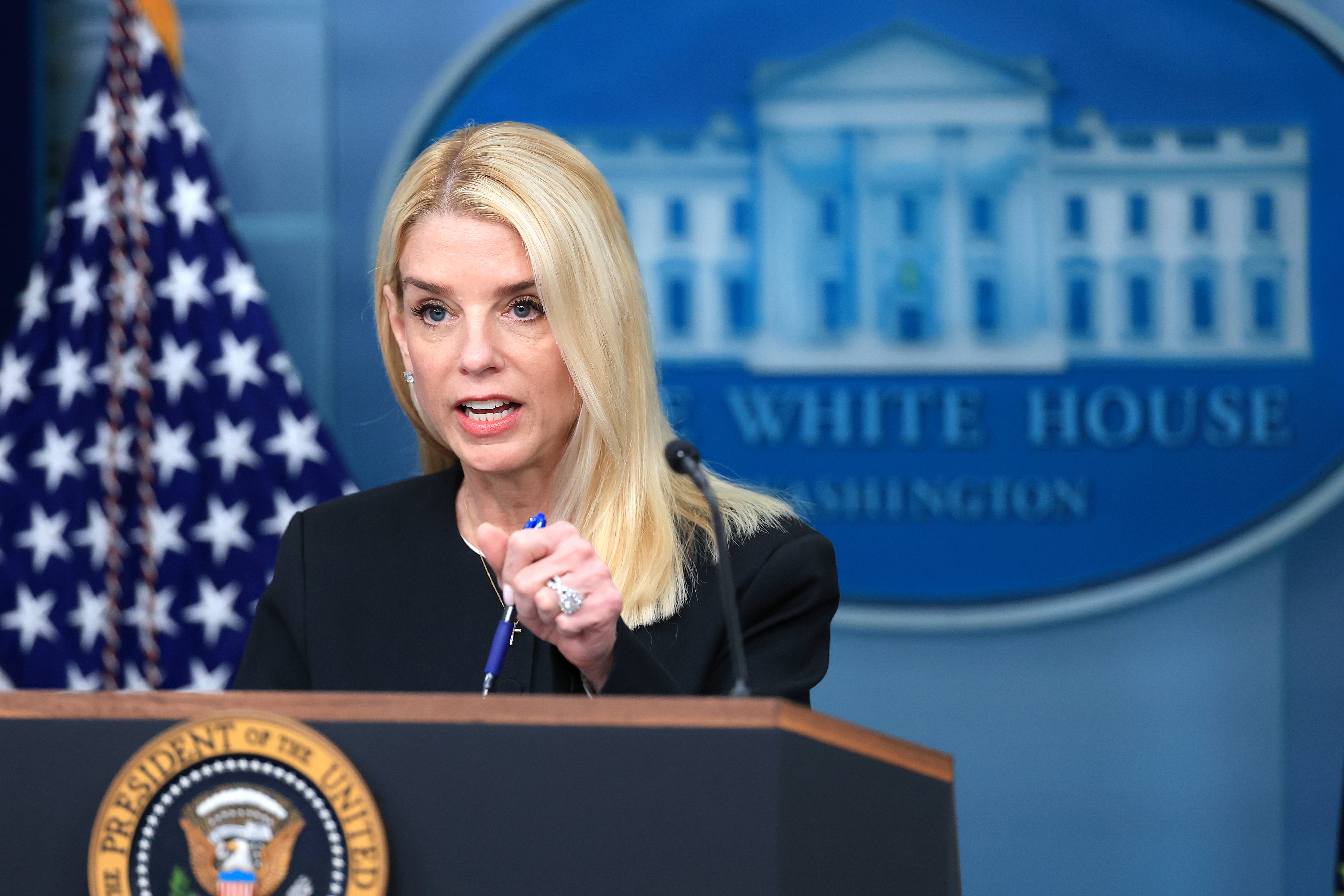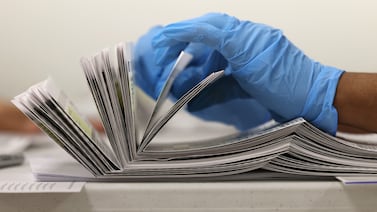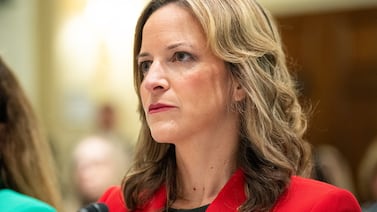Votebeat is a nonprofit news organization reporting on voting access and election administration across the U.S.
This news analysis was originally distributed in Votebeat’s free weekly newsletter. Sign up to get future editions, including the latest reporting from Votebeat bureaus and curated news from other publications, delivered to your inbox every Saturday.
The U.S. Justice Department has begun asking states to hand over lots of information, including voter rolls, in its campaign to check compliance with federal voting laws. Pennsylvania got an expanded request this week. Eventually, all 50 states will be contacted.
State officials tell Votebeat they are hesitant to respond to the requests, which haven’t provided much explanation of how the data will be used or protected.
Their reluctance makes sense: The requests themselves might violate federal law.
Some states, including Maine, have already said no to the Justice Department’s request. Others are still reviewing them.
The response echoes what we saw in 2017, when a different arm of the Trump administration — the voter fraud commission he appointed to investigate his spurious claims — asked every state for their voter rolls.
That push collapsed quickly after a bipartisan outcry. Mississippi’s then-secretary of state, Republican Delbert Hosemann, famously told the commission it could "go jump in the Gulf of Mexico" (a rebuke that Maine’s secretary of state nodded to this year, when he said the DOJ could "jump in the Gulf of Maine“).
It remains to be seen whether Republican state officials will be more receptive now that 1) time has passed 2) “election integrity” has become a bigger part of their brand, and 3) the request is coming through DOJ channels. But the concerns — vague legal justification, privacy risks, and lack of clarity on data use — remain essentially the same. And this time, states are being asked for a lot more. The letters sent to states include requests for information on everything from noncitizen voter registration to election procedures. In the letter to Colorado, the DOJ asked for basically everything.
The Privacy Act of 1974 lays out strict guidelines for data requests by federal agencies. One key requirement is that agencies must publish a System of Records Notice, a public explanation of what data they’re collecting, why they need it, and how they intend to use and store it.
The law is meant to prevent government overreach and protect individual privacy. Even if the motives for the underlying investigation are legitimate, the process has to be, too.
If the Justice Department is skipping the System of Records step, or not following the rest of the required process, it can erode the already fragile trust that voters and election officials have in the system. And it may be violating federal law.
This isn’t happening in a vacuum. As the Washington Post reported last month, local election officials in Colorado recently reported receiving “murky” and unofficial-seeming requests for access to voting machines. Some of those requests even claimed to be from federal authorities, though they offered no documentation to back that up. Like the DOJ’s voter roll push, these requests appear designed to test the limits of what election officials will agree to.
Once the government crosses the line into sweeping, unexplained grabs for voter data and more, it’s hard to walk it back. If states cave to these requests without demanding a clear legal foundation, they are inviting future administrations to make more such requests. And next time, it’ll be even harder to say no.
Jessica Huseman is Votebeat’s editorial director and is based in Dallas. Contact Jessica at jhuseman@votebeat.org.



